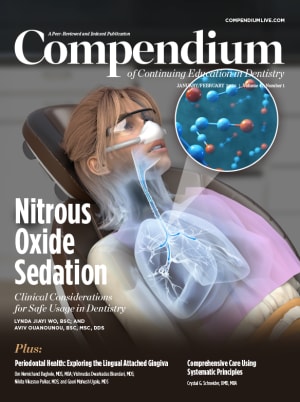A Movement to Advance Population Health Through Oral Health
The launch of the July 21, 2019, issue of The Lancet highlighting oral health marked a historic moment in dentistry and its role in advancing global health. That noteworthy series of articles described the state of oral health and proposals to reform and reorient global approaches to integrate oral and general systemic health and to tackle the social determinants of health. (See Compendium's January issue, p.60, for commentary on The Lancet series.)
While many stakeholders in dentistry, including a group to which I belong, La Cascada, have published previous messages on the need for radical changes in this area, the Lancet series signifies an awareness among those in the global health community of the need to pay attention to their colleagues working in the often neglected field of the mouth and craniofacial complex. La Cascada group, which represents an informal array of senior scientists and educators from Australia, Colombia, Denmark, Sweden, the United Kingdom, and the United States, published a Declaration and associated background papers (https://lacascada.pressbooks.com). The Declaration was re-published in the Australian Dental Journalin September 2017, "Dentistry in Crisis: Time to Change. La Cascada Declaration." Later the Indian Journal of Dental Research,in its September/October 2017 issue, published "Why a Radical Overhaul of Dentistry Is Needed." In an oversimplified nutshell, the arguments revolve around the fact that dental schools are burgeoning and there is a growing supply of dentists, yet metrics on population oral health demonstrate an associated decline.
Independently, in March 2018 the Journal of the American Dental Association published a guest editorial, "Our Dental Care System Is Stuck: And Here Is What to Do About It." Other countries, from Brazil to Iran, are hosting discussions and preparing analyses for debate, raising awareness of the profession to explore "out-of-the-box" strategies to right trends that seem to be going in directions incompatible with advancements in population oral health. How to harness the positive impacts of social determinants of health and minimize the common risks of disease and ill health emanating from sugar, sodium, alcohol, tobacco, and lack of physical fitness, etc, involves problem-solving with other health professions, public and private policymakers, and, most importantly, members of civil society, the community members themselves.
Refocusing the workforce, the existing cadre, and new generations of dentists and perhaps other types of health and community workers on advocacy for healthy public policies and more personalized approaches to prevention, diagnosis, and treatment may be challenging but necessary to reverse the current crisis.
As a direct consequence of The Lancet oral health issue launch, and coupled with recent United Nations proclamations to include oral health in their proclamations on the prevention and control of noncommunicable diseases (NCDs) (2011) and more recently on universal health coverage (UHC) (2019), the momentum for more coordinated efforts to tackle oral health has begun. This past December, a meeting was convened at the World Health Organization in Geneva by the Assistant Director-General of UHC/Communicable and Noncommunicable Diseases Division to explore how effective oral health policies will reduce the burden of oral diseases and other NCDs in order to achieve UHC. Currently, efforts are progressing to organize what may be called the Lancet Commission on Global Oral Health to mobilize not only dental professionals, but also medical representatives, members of the public, and those who formulate and implement healthy public policies.
To accelerate this movement, which is beginning to take on the characteristics of a social movement to advance the population's health, a "global village" of ideas is needed. Each country, of course, will have to actively pursue its own discourse about any necessary reforms to reverse existing trends, such as: declines in wellness; increased disparities in prevention, diagnosis, and treatment; global food insecurities and declines in nutrition; a workforce trained for surgical interventions rather than prevention; and payment systems that reward surgical interventions over prevention. Other issues may include problems associated with siloed care delivery versus integrated personalized care, and the slow progress of interprofessional education and formation of collaborative care teams.
Solutions to these myriad problems perhaps may be found in other countries that are crafting new systems of care from scratch or that have had to adjust and modify existing systems with innovative tested remedies. Reciprocal learning from fora with global representation may serve as a critical reservoir of ideas, with the recognition that discussions and decision-making are local, regional, and national. Brainstorming an array of solutions relevant to existing problems is the first step to generating action to advance population health through oral health.
About the Author
Lois K. Cohen, PhD
Consultant and Paul G. Rogers Ambassador for Global Health Research; Formerly Associate Director for International Health – National Institute of Dental & Craniofacial Research, National Institutes of Health, US Department of Health and Human Services, Bethesda, Maryland
